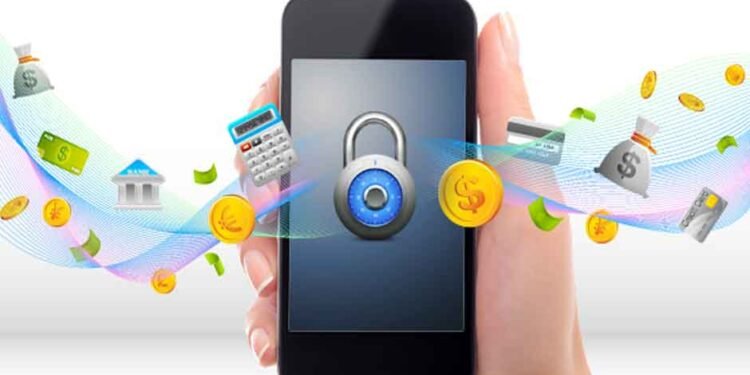Nearly half of Americans spend four to five hours on their smartphones each day. With mobile phones becoming multi-functional devices, their usage has surged dramatically across all demographics.
Today, they serve as a mini-computer, voice assistant, camera, camcorder, and data storage unit, allowing you to check emails, store files, take notes, create documents, edit photos, and do much more. Phones have also become essential for browsing the internet, making purchases, banking online, and streaming movies.
Yet, many people do not show their phones the same care and concern they have for their personal computers and, as a result, leave them vulnerable to security threats.
Why Protecting Your Mobile Phone Matters
According to studies, 89% of people check their phones within just 10 minutes of waking up, and 75% of them are uncomfortable stepping out without them. This level of addictive behavior makes phone users an easy target for fraudsters, criminals, and anyone else with personal gains in mind.
Some of the common phone-related threats that could compromise your privacy and security include:
- Malware attacks that steal data or hold your phone hostage until you pay a ransom.
- Financial scams initiated via phone calls, SMSs, and messages.
- Unsafe links and downloads shared in messages and emails.
- Vishing and smishing fraud launched via calls and SMSs to trick you into disclosing personally identifiable information (PII).
- Unethical data tracking, mining, and sharing by legitimate service providers, including app developers, browsers, operating systems, and phone manufacturers.
- Physical theft of your phone.
All these can expose you to identity theft and financial fraud when you leave your mobile device unguarded. Mitigating damage and recovering from such an incident could involve substantial time, costs, and hassle.
Essential Mobile Phone Safety Tips
So, how can you protect your phone and ensure personal safety? Here’s what you need to know.
Strengthen device security
The first thing you need to focus on is leveling up your phone security. Most phones come equipped with several security features. But having them is not the same as consciously using them. You must be proactive in how you go about keeping your mobile phone secure.
- Lock the screen
Depending on your phone’s manufacturer, you may have different options to lock its screen. Almost every phone provides a screen lock based on a passcode. This is the most basic security feature to adopt. However, avoid using birthdays and other easily guessable passcodes.
Most modern phones offer locking features that rely on biometrics—from fingerprints to iris scans and facial recognition. They offer added security based on an identifier unique to you, preventing others from going past your phone screen in the event of theft.
- Protect online accounts
Many people access emails, bank accounts, social media, shopping carts, and a range of other services on their phones. All these personal accounts can come under threat when an intruder gets hold of your phone.
So, guarding them with strong passwords is important. Never reuse login credentials for multiple accounts or save them on your device. Set up multi-factor authentication, too, if it is available, and log off from the accounts when you are not using them.
- Install virus protection
A trusted virus guard can protect your phone from most malware threats.
- Update software
From time to time, software developers release updates with patches to minimize security vulnerabilities. These allow you to keep your phone safe against malicious attacks.
- Practice browser safety
Ensure you use safe browsers, such as Chrome and Opera, that deploy advanced security features to prevent viral threats. They will also provide options to clear cookies and search histories and deactivate auto suggest and auto form fill so you can avert data tracking and keep your personal information safe.
- Backup data
Most phones offer cloud backup solutions to make data recovery easier if you ever lose your phone or encounter a malware attack. Taking copies onto external storage devices will also prove useful in such an event.
- Keep your phone safe
Losing smartphones due to theft or misplacing them is more common than you think. So, keeping a watchful eye on your phone will never go to waste.
Moreover, avoid sharing it with others or allowing anyone with access to it without your presence.
Ward off data threats
In addition to the standard security measures, identifying and avoiding potential threats is important for safeguarding your phone and minimizing risks.
- Re-evaluate your app usage practices
The average person has around 35 apps on their phone. Many of them are rarely used but continue to use up space while tracking your activities in the background.
Remember, mobile applications can pose a significant threat to your privacy when they have access to your contact list, location, image gallery, and the like. So, only download applications from a reliable app store and always check app permissions before installing them. Deleting what you don’t require or use is equally important.
- Never share personal information
Criminals frequently deploy phone impersonation scams to phish for identifiable data. To avoid falling victim to these, get into the habit of searching unfamiliar phone numbers on PhoneHistory to find more details about them.
- Use a caller ID service
This is another effective feature to avoid robocalls, deceitful telemarketers, and fraudulent individuals.
- Block unwanted calls
When spam or scam-related callers contact you, blocking them immediately is essential for preventing them from calling again.
- Use a VPN
You can avoid many unwelcome intrusions on unsecured networks by using a virtual private network that encrypts your online activities.
- Deactivate data tracking
The data-tracking practices of apps, operating systems, browsers, and websites could also compromise security. So, find their privacy settings and block them from collecting and sharing your personal information. Don’t forget to turn off location tracking, too.
- Avoid links and attachments
You might often receive unverified links and attachments via SMSs, messages, and emails. Avoid accessing them on your smartphone to prevent malware threats.
To Conclude
Today, your phone contains not only contact lists, photos, and videos but also email inboxes, online bank accounts, shopping carts, and other personal data sources that could jeopardize your safety when compromised. These involve critical and personal information, which should remain guarded.
With a single data breach, you could become a victim of identity theft, financial fraud, extortion, and other threats to privacy and safety. So, take proactive measures without delay to strengthen security and protect yourself and your device.












